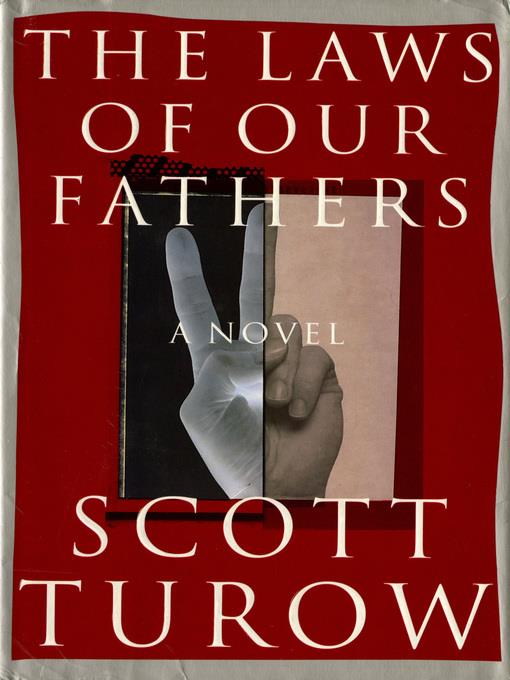
The Laws of our Fathers
Kindle County Series, Book 4
کتاب های مرتبط
- اطلاعات
- نقد و بررسی
- دیدگاه کاربران
نقد و بررسی

Starred review from October 21, 1996
Unlike some of his fellow lawyers-turned-novelists, Turow takes his time with his books: one every three years since Presumed Innocent. This time it has been spectacularly worth the wait. Laws of Our Fathers is a rich, complex and ultimately profoundly moving tale that, like all Turow's work, is quarried from the mysteries of human character rather than simply from the sometimes too-easy drama of the courtroom. It begins in the gritty setting of an inner city slum and in the mind of a soul-dead black gangster. An ambush is being laid and when it is sprung, the wrong person, an elderly white woman, the wife of a state senator, is dead. Was her hapless son somehow involved in the murder plot, and what role did the senator play? The hot-potato case comes into the court of Judge Sonia (Sonny) Klonsky (remembered from The Burden of Proof), and the courtroom soon looks like Old Home Week as it becomes clear that Sonny, black defense lawyer Hopie Tuttle, state senator Loyell Eddgar, and observing newspaper columnist Seth Weissman all knew each other back in the wild student days of the '60s. The courtroom scenes that follow are swift-moving and surprising, especially since Turow has the nerve to depict a "bench trial,'' in which a judge alone hears evidence, so there is no playing to a jury, and the scenes are worked out dramatically person to person. But the legal aspects of his novel, highly dramatic though they are, are not what most interests the author. The book is in fact basically about family relationships: the passionately leftist Eddgar's with his wife and son; Seth's with his austere, penny-pinching father, survivor of a Nazi death camp; and Sonny's with the memories of her wild communist mother and with her own precious, late-in-life young daughter. Most fine novels have a keen sense of the passage of time, and Turow's grasp of the revolutionary fervor of the '60s and how it has later calmed into rueful, if still compassionate, acceptance, is masterly. A fine stroke too, is his use of the funeral eulogies for Seth's father to sum up, touchingly, what these often embattled and misled people have learned with such difficulty in their lives. There are minor flaws: the multiple personal perspectives in the narrative are not always as well differentiated as they might be, and Sonny's on-again, off-again feelings toward Seth become somewhat repetitious. But these are quibbles in the light of Turow's grandly ambitious achievement: to focus the profoundest struggles of two generations through one sordid, emblematic crime. First serial to Playboy; movie rights sold to Universal; author tour.

August 1, 1996
Turow once again proves that there is more substance in a single page of one of his novels than in the entire works of John Grisham or any other author in the legal thriller genre. In this latest, the mother of a probation officer is shot near a gang-infested housing project, provoking charges that her son orchestrated the killing. The ensuing trial reunites a group of affluent Sixties activists who knew each other in their student days. The courtroom scenes are energetic and intelligent, and Turow never resorts to playing good guys vs. bad guys. Nor does he subject his characters to tearful, revelatory testimony while on the stand. His dialog is snappy and believable--aside from some awkwardly rendered sections featuring the leader of an urban street gang--and his insight into his characters' petty motivations and misplaced love is dead on. All public libraries should have a copy of this fine novel.--Mark Annichiarico, "Library Journal

Starred review from September 1, 1996
With the same masterful narrative technique used in his previous best-sellers, Chicago attorney Turow delivers another dense, exciting legal thriller. The setting is his usual fictional Kindle County, and we revisit Judge Sonia "Sonny" Klotsky, last seen in "The Burden of Proof" (1990). Sonny, a newcomer to the bench after the district cleared out numerous corrupt justices in the latest sting, finds herself sitting as judge in a high-profile murder case--a juryless bench trial, no less. Although confident in her knowledge and application of the law, Sonny feels an incessant knot in her stomach over being the sole arbiter of the lives of heinous though pitiful defendants. Only adding to her inner struggle is the fact that this particular trial--where a senator's son allegedly had a hand in murdering his mother when he was, in fact, trying to kill the senator himself--becomes something of a reunion of 1960s college chums, for Sonny was in a virtual commune with the defendant and his family, the defense attorney, and, most poignant of all, her former lover turned journalist. Turow, while telling a fascinating crime story, skillfully turns the book into a tale of love and loss, of family and friendship. Expect much demand. ((Reviewed Sept. 1, 1996))(Reprinted with permission of Booklist, copyright 1996, American Library Association.)

























دیدگاه کاربران